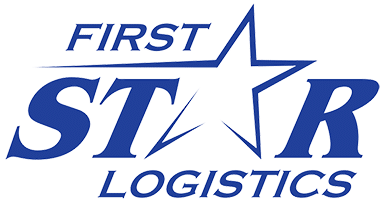When shipped, freight needs to arrive on time and in perfect condition. The safety of the cargo is paramount for shippers. For transportation providers, the goals are to deliver goods on time, mitigate complications, maximize efficiency of their supply chain operations, maintain strong customer communication, mitigate risk, and more. There are many transportation carriers, and choosing the best carrier for your business needs can be difficult. The types of transportation providers are distinguished by how they achieve these goals. To make the best business decision, it is important to understand the differences between asset-based carriers and non-asset-based carriers (also known as freight brokers).
What is an asset-based carrier?
An asset-based carrier is a transportation company that owns equipment such as tools, trucks, and warehouses to store and ship freight for clients. Asset-based carriers provided many services directly to clients including warehousing, distribution, and other value added services.
Advantages of Asset-Based Carriers
Asset-based carriers are beneficial because their ownership of assets such as equipment and space allow them to integrate multiple services. Consistency is the primary advantage of asset-based carriers. Because carriers deploy their own equipment and drivers, they can maintain high quality standards. Many shippers appreciate a single point of contact for all of their freight logistics needs and appreciate their reputation for reliability. With asset-based carriers, a singular company is responsible for all logistics activities and therefore has the insight to conduct oversight measures, attend to maintenance needs, and resolve issues.
Additionally, asset-based carriers often offer highly focused solutions that make them ideal for serving specific network needs such as local and regional deliveries. Asset-based carriers are also ideally positioned to offer excellent intermodal support, which can be a desirable, cost-effective transportation solution for many freight transport needs. Finally, asset-based carriers lead in the arena of drop and hook shipments significantly streamline the shipping process.
Disadvantages of Asset-Based Carriers
Because asset-based carriers use their own equipment and resources, logistics options and solutions to challenges will be limited based on the scope of the in-house capabilities. By definition, asset-based carriers only have access to their own fleet and personnel. This can result in a lack of flexibility and restricted network coverage. An asset-based carrier may not be able to fulfill a shipper’s request if the requirements fall outside of their coverage area or capabilities. Furthermore, asset-based carriers may not have as many options or the volume needed to optimize energy efficiency. This can lead to higher carbon emissions than other, higher volume and subsequently more energy efficient solutions.
What is a non-asset-based carrier/freight brokerage?
A non-asset-based carrier is also known as a freight brokerage company. These providers do not own or operate their own equipment. Instead, they coordinate freight transport using an extensive network of carriers. Freight brokers specialize in negotiation, maintaining strong relationships with their network of logistics partners, and delivering the most efficient solution.
Advantages of Non-Asset-Based Carriers
Non-asset-based carriers are beneficial because they can access infinite numbers of trucks, other equipment, and resources to serve their customers. With widespread resources, freight brokerage is the ideal way for companies to transport goods long distances. Non-asset-based carriers known for dealing with high volume transport logistics that maximize efficiency, which can lead to lower carbon emissions than other less energy efficient solutions.
Disadvantages of Non-Asset-Based Carriers
Non-asset-based carriers function as middlemen between companies and carriers, so the quality of their services depends on the quality of the carriers. Because freight brokers do not own or operate trucks and they do not directly employ drivers, they do not have a guaranteed capacity. The capacity is contingent upon relationships and networks. Non-asset-based carriers have less control over issues and errors, and may not always be able to contact the driver if there is a problem.
How to Choose Between Asset-Based Carriers and Freight Brokerage
Choosing between asset-based carriers and freight brokerage is a significant decision that ultimately hinges on the types of services your business needs and the types of relationships your business prefers. It is paramount that your freight is always shipped safely and efficiently. It is also critical that the network you need to reach aligns with the logistics partner’s area of expertise. Both asset-based and freight brokerage services offer unique and meaningful advantages. In fact, many companies benefit from harnessing the power of both asset-based carriers and freight brokerage teams.
First Star Logistics is a unique asset-based global logistics provider with an in-house freight brokerage department. With their comprehensive logistics solutions and specialized services, First Star Logistics consistently prioritizes their responsibility to every client to ensure safe, secure, and timely deliveries.
For all of your freight logistics needs, contact First Star Logistics today!



